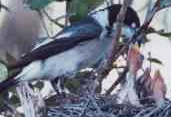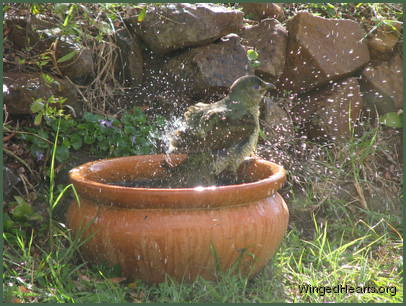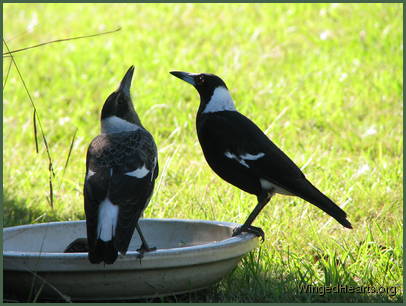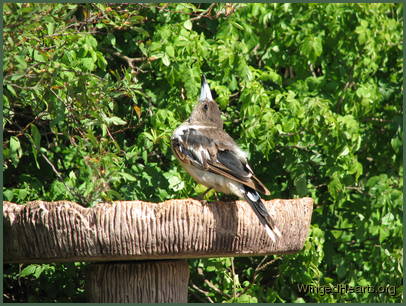Navigation
- HOME
- Wild Bird Rescues
- Communicating With Wild Birds
- Recognising Birds
- No Life For Caged Birds
- Birds I View
- Feathery Tales
- Flying Foxes and Bats
- Grounded!
- Not Just A Bird...
- The Sticky Beak
- Winged Tips
- Your Winged Friends
- Books & Resources
- Wild Bird Talking Ezine
- About the authors
- Contact Us
- News and Media
- Links
- Forums
Blog chat login
Carbon Is Life Book
The story of carbon dioxide, the essential life-giving gas that feeds all life. Contrary to everything we have been told, our planet is currently suffering a carbon famine, with deadly consequences for the poor and for wildlife.
This is the book every environmentalist and lover of wildlife really needs to read! (Click on the image to find out more.)

 Now the birds are getting used to you taking an interest in them. They are beginning to create their own patterns of understanding your words and behaviour, based on the sound and tones of your words and also your actions and movements.
Now the birds are getting used to you taking an interest in them. They are beginning to create their own patterns of understanding your words and behaviour, based on the sound and tones of your words and also your actions and movements. Once some birds notice your bird bath or water bowl, they'll spread the word very quickly and other birds will also try it out.
Once some birds notice your bird bath or water bowl, they'll spread the word very quickly and other birds will also try it out.  Not all of us have garden or are lucky enough to live at the edge of a rainforest or a green belt. Fortunately, birds are all around us whether we live in the city in a multi-storied apartment block or we live in the suburbs or countryside surrounded by nice lawns, shrubs and trees. The first thing you need to is to give the birds an incentive to come to your home, close enough to enable you to start forming a friendship.
Not all of us have garden or are lucky enough to live at the edge of a rainforest or a green belt. Fortunately, birds are all around us whether we live in the city in a multi-storied apartment block or we live in the suburbs or countryside surrounded by nice lawns, shrubs and trees. The first thing you need to is to give the birds an incentive to come to your home, close enough to enable you to start forming a friendship. Wild Birds love communicating with each other, with birds from other species, with other animals and they absolutely love talking to humans. They may fly off in a flurry at the very start because they may not be sure of your intentions, or they may befeeling particularly shy or self-conscious. But once they realise that you are sincerely interested in them, they begin to respond and take an interest in you.
Wild Birds love communicating with each other, with birds from other species, with other animals and they absolutely love talking to humans. They may fly off in a flurry at the very start because they may not be sure of your intentions, or they may befeeling particularly shy or self-conscious. But once they realise that you are sincerely interested in them, they begin to respond and take an interest in you.




